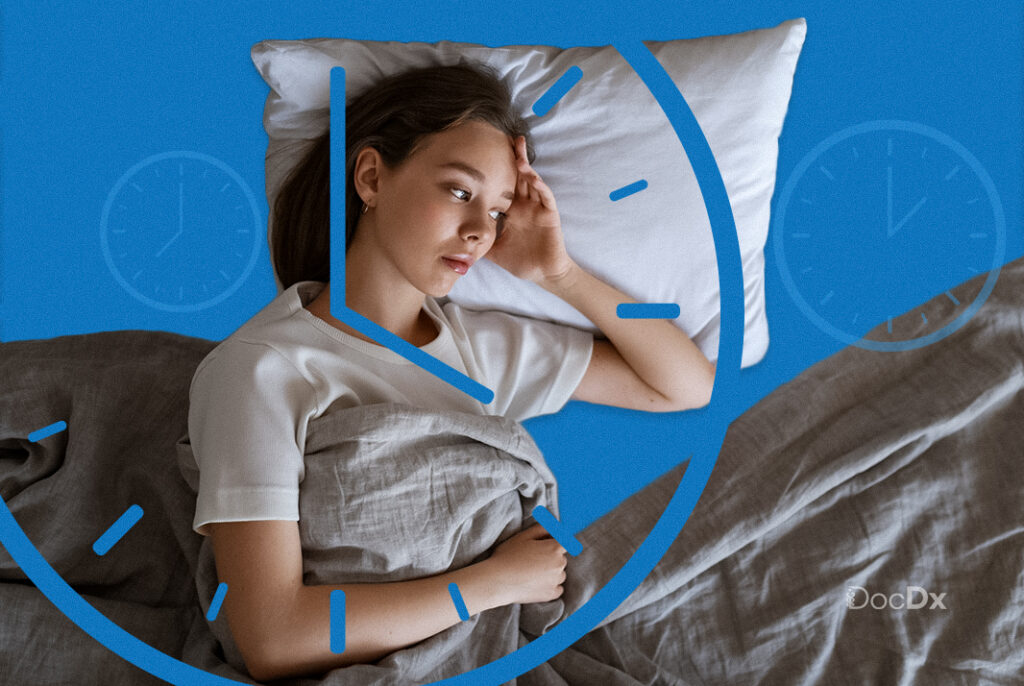Ever felt like no matter how early you go to bed, you still wake up groggy, drained, and downright miserable? You’re not alone. Sleep affects almost every aspect of our health, from mood and energy to hormones, immunity, and long-term wellness. Millions struggle with sleeping problems and most people don’t realize that a primary care provider (PCP) might just be the secret weapon to solving this.
In this guide, you’ll learn how sleep impacts overall health, the types of sleep disorders to watch out for, and how primary care plays a major role in improving sleep quality through early detection, lifestyle guidance, and ongoing care.
Understanding the Connection Between Sleep and Overall Health
Why Sleep Quality Matters
Sleep is your body’s most powerful built-in recovery system. It repairs tissues, balances hormones, supports memory, and keeps the immune system functioning properly. When sleep is cut short or disrupted, you don’t just feel tired, you lose the foundation of good health.
Common Signs of Poor Sleep You Should Never Ignore
You may have a sleep issue if you regularly experience:
- Difficulty falling or staying asleep
- Loud snoring or gasping for air
- Daytime fatigue or brain fog
- Trouble concentrating or irritability
- Morning headaches
- Microsleeps while driving or working
These symptoms can appear slowly and may be easy to dismiss, but they could indicate deeper health concerns.
Long-Term Health Risks Linked to Untreated Sleep Issues
Poor sleep doesn’t just affect your mornings; it can influence your long-term health. Untreated sleep disorders have been linked to:
- High blood pressure
- Weight gain and metabolic issues
- Depression and anxiety
- Weak immune function
- Heart disease and stroke
- Memory decline
The longer sleep issues persist, the greater the health risks. This is where primary care steps in.
What Are Sleep Disorders?
Sleep disorders come in many forms, and primary care providers are trained to recognize early warning signs.
Insomnia – Difficulty falling asleep, staying asleep, or waking up too early.
Sleep Apnea – A serious disorder where breathing repeatedly stops and starts during sleep. Often goes unnoticed unless a partner reports loud snoring or choking sounds.
Restless Legs Syndrome (RLS) – A strong urge to move your legs, especially at night, making it hard to relax and fall asleep.
Circadian Rhythm Disorders – When your internal body clock is misaligned, often due to shift work, travel, or irregular routines.
How Primary Care Plays a Key Role in Sleep Health
Your Primary Care Provider as Your First Point of Contact
Primary care is often the gateway to understanding sleep-related problems. Many people assume sleep issues require a specialist right away, but PCPs are trained to evaluate sleep symptoms, manage routine cases, and coordinate advanced care if necessary.
Early Detection and Assessment of Sleep Problems
Through regular check-ups, your PCP can spot patterns tied to sleep issues like rising blood pressure, mood changes, or chronic fatigue.
Why Having a Dedicated Primary Care Provider Matters
A long-term relationship with a PCP means access to consistent, personalized care. Learn more about this through this article about: dedicated primary care provider for long-term health.
Lifestyle, Diet, and Daily Habits That Affect Sleep
How Your Eating Patterns Influence Sleep Cycles
Heavy meals, caffeine, and late-night snacking can disrupt your sleep cycle. Your PCP can guide you on dietary habits that support restful sleep. You can also read more about how diet shapes overall health in this helpful article: the link between diet, lifestyle, and health.
The Role of Physical Activity
Regular movement promotes better sleep quality, reduces stress hormones, and helps regulate your internal clock.
Stress, Workload, and Mental Wellness
Mental strain is one of the biggest triggers of sleep problems. To learn how primary care supports mental health, review this guide on mental wellness and primary care.
How Primary Care Helps Diagnose Sleep Disorders
Sleep Evaluations and Screening Questions
Your PCP may ask about:
- Sleep duration
- Bedtime routines
- Snoring
- Daytime sleepiness
- Lifestyle habits
Reviewing Medical History and Risk Factors
Chronic diseases, medications, allergies, weight changes, or mood conditions can all contribute to sleep disturbances.
When You May Need Sleep Studies or Specialist Referrals
If symptoms point to a more complex condition like sleep apnea, your PCP may recommend a sleep study or refer you to a sleep specialist.
Treatment Options Offered Through Primary Care
Behavioral Therapy and Lifestyle Modifications
Primary care can introduce simple but effective strategies, such as improving sleep hygiene, establishing consistent bedtime routines, or adjusting diet and exercise.
Medication Options
Short-term sleep aids may be offered when appropriate, but your PCP will prioritize non-medication approaches first to avoid dependency.
Continuous Monitoring and Follow-Ups
Sleep issues aren’t always solved overnight. Ongoing care ensures progress is tracked and treatments are adjusted as needed.
The Link Between Sleep and Chronic Health Conditions
Sleep and Cardiovascular Health
Poor sleep increases the risk of hypertension, arrhythmias, and heart disease. Treating sleep disorders can significantly improve cardiovascular outcomes.
Sleep and Metabolic Disorders
Lack of sleep can affect appetite hormones, increasing the risk of weight gain and diabetes.
Why Primary Care Is Essential in Managing Long-Term Conditions
PCPs oversee the full picture of your health, connecting how sleep interacts with existing conditions and medications.
How Primary Care Supports Long-Term Wellness
Building a Long-Term Health Strategy
Primary care promotes consistent, preventive care that keeps health challenges including sleep issues from escalating.
Preventive Care to Improve Sleep Quality
Routine appointments, screenings, and health management services help prevent sleep-related complications.
When to See Your Primary Care Provider About Sleep
Symptoms That Require Immediate Attention
Seek care if you experience:
- Loud snoring with gasping
- Extreme fatigue
- Insomnia lasting more than three weeks
- Unexplained headaches
How Early Intervention Can Improve Sleep and Health
Early conversations with your PCP can prevent long-term health challenges and dramatically enhance sleep quality.
Conclusion
Sleep is a pillar of good health, but many people struggle silently with sleep disorders. The good news? Primary care is one of the most effective ways to identify these issues early, receive personalized treatment, and build long-term habits that support better sleep. With the right guidance, lifestyle changes, and continuous support, better sleep and better health is absolutely within reach.




